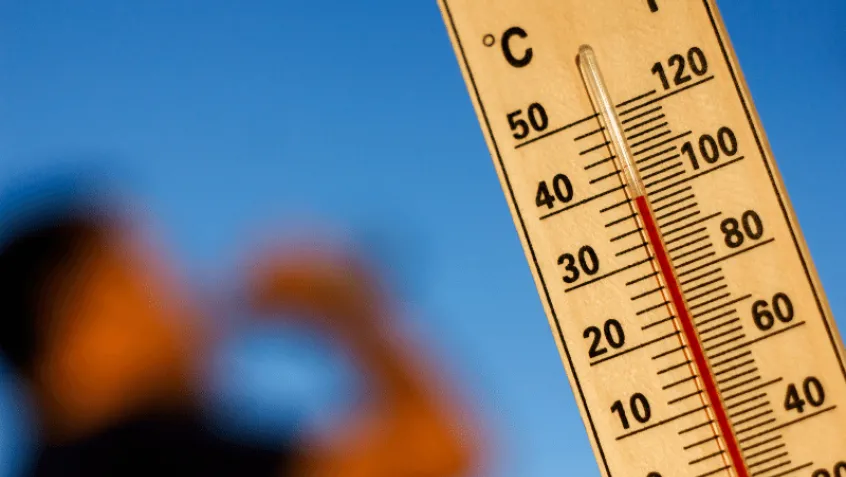Story
Beat the Heat

Over the past few decades, unusually hot summer days have become more common in the United States. And, the frequency of heat waves “ three days with temperatures above 90 degrees Fahrenheit for most parts of the United States“ doubled during the 20th century.
Know Your Risk
People who live in urban areas may be at higher risk from the effects of prolonged heat waves than people living in rural areas. In cities, asphalt, concrete and other building materials trap heat, causing overall urban temperatures to rise. Children up to four years of age, people 65 years and older, people with existing medical problems such as heart disease and people without access to air conditioning are at greater risk of heat-related illnesses.
Protect Your Health
- Slow down. Wait until it's cooler outside to do hard work, such as sports, exercise and gardening.
- Stay cool. Look for shade outside and seek out air conditioning inside. If you don't have air conditioning, visit a senior center, movie theater, library, mall or designated community cooling center.
- Drink up. Drink plenty of fluids, but avoid caffeine and alcohol.
- Check on others. If you have a family member or neighbor who is at risk, visit them regularly. If you see signs of heat-related illness, seek help immediately.
Learn More
- Learn more about extreme weather in a changing climate in this free course created by NEEF.
- Get to know the difference between Excessive Heat Outlooks, Watches, Warnings and Advisories issued by the National Weather Service.
- Learn what to do during a heat wave with tips from National Weather Service.
- Find out how to protect your health during a heat wave if you work outdoors.
- Protect your pets from the heat with tips from American Red Cross and the Humane Society of the United States.
Useful Tools
- Use NOAA's Heat Index to find out how hot it really feels when relative humidity is factored in with the actual air temperature.
- Use OSHA's Heat Safety Tool App to calculate the heat index and get reminders about extreme heat safety for outdoor workers.
Topics


